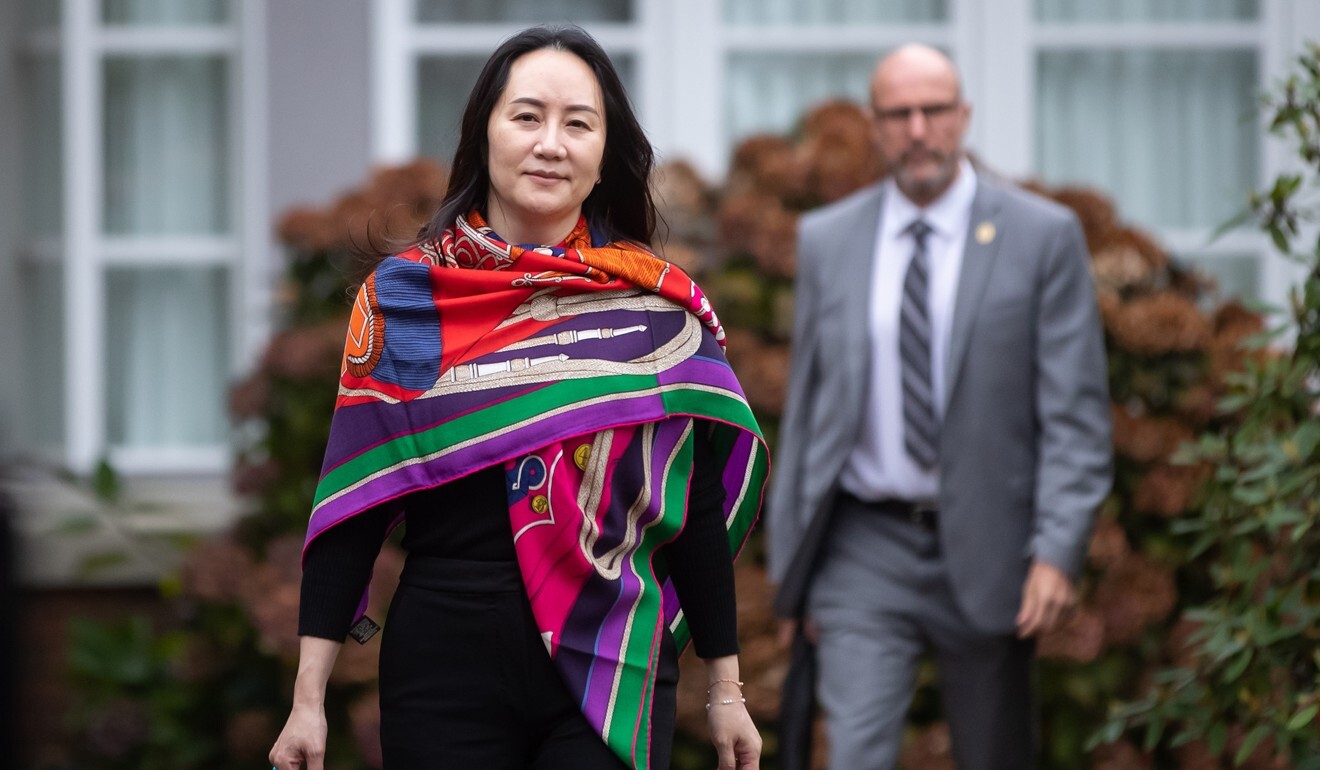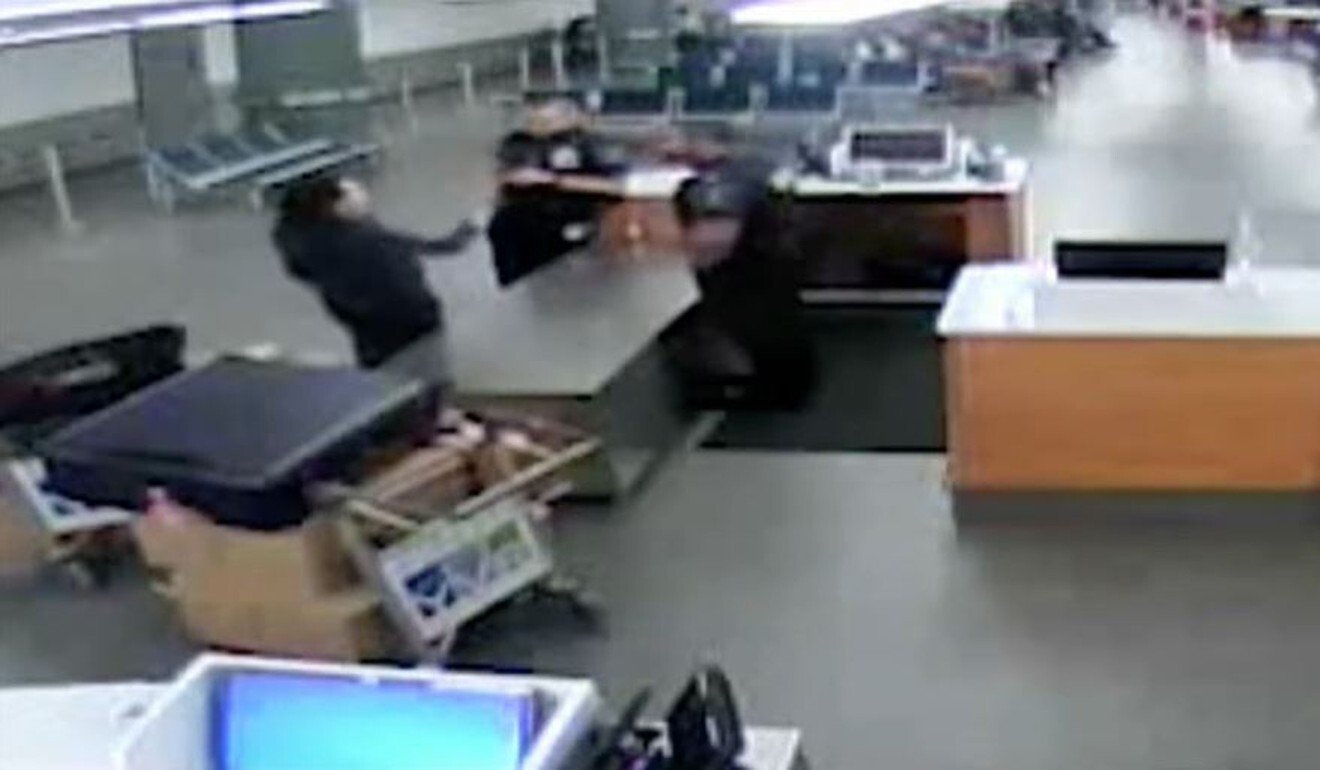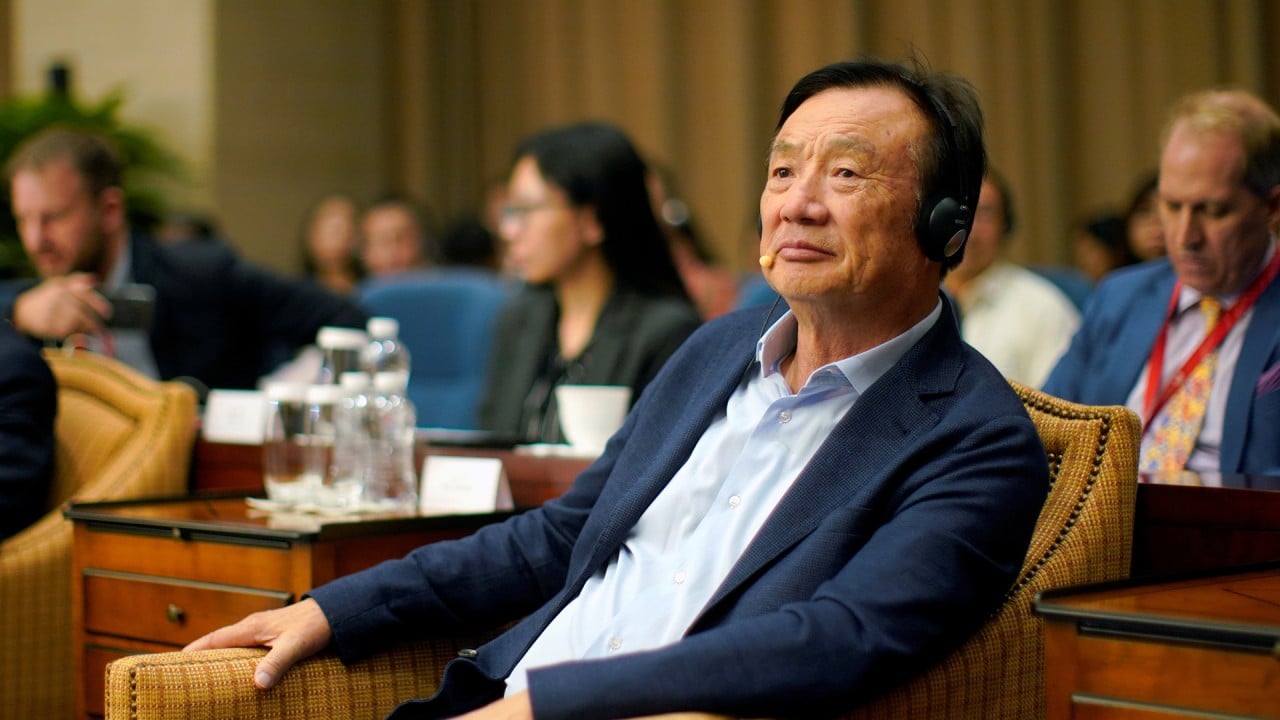
Canada border officer says giving police Meng Wanzhou’s device passwords was ‘embarrassing, heart-wrenching’ blunder
- Scott Kirkland, testifying in extradition case, denies deliberately violating Huawei executive’s rights or acting for police or FBI by handing over passwords
- But Meng’s lawyers say it was part of a covert plot to gather evidence for the American FBI
A Canadian border officer who dealt with Meng Wanzhou at Vancouver’s airport in the hours before her arrest said he made an “embarrassing” and “heart-wrenching” mistake, when his handwritten note with the passwords of Meng’s electronic devices ended up in police hands, breaching privacy laws.
Canada Border Services Agency (CBSA) officer Scott Kirkland denied that he deliberately obtained the passwords on behalf of police, depicting the handover instead as a blunder he only realised he had made a few days later.
But Meng’s lawyers say it was part of a covert plot by the CBSA and the Royal Canadian Mounted Police (RCMP), to gather evidence for the American FBI.
Kirkland came under intense cross-examination on Friday from the Huawei executive’s lawyer Mona Duckett, as she attempted to prove Meng’s rights were violated in the border process.

They want Meng’s extradition case in the Supreme Court of British Columbia thrown out as a result. The US wants Meng sent to New York to face trial on fraud charges, which are denied by Meng, the chief financial officer of Huawei Technologies.
Meng, 48, was arrested at Vancouver’s airport on December 1, 2018, more than three hours after arriving on a flight from Hong Kong.
Kirkland had previously testified that he worried that delaying Meng’s arrest would be challenged in court, and he suggested that she be arrested by the RCMP immediately after she got off the plane.
Instead, he and colleagues conducted a border examination during which they questioned her about Huawei’s activities in Iran and seized her devices and passwords.
Duckett called Kirkland’s note with the passcodes, provided by Meng, the keys to “a private box with a wealth of personal information” on her.
“This piece of paper is instructions for police, isn’t it?” said Duckett.
Kirkland denied this, maintaining that the passwords were only obtained for the purposes of his immigration exam. But the note was placed on a stack with Meng’s devices, which were handed over to the RCMP when they arrested her.
Providing the passwords to police was a breach of the Privacy Act, Kirkland previously agreed.
He described a postmortem of the border inspection, conducted with CBSA colleagues the next week, when he said he realised he had made a mistake.

“It was an embarrassing moment for me, in that meeting. I, as I am right now, was embarrassed … it was heart-wrenching to realise I had made that mistake,” said Kirkland.
Duckett proposed to Kirkland that his notes and statutory declaration about Meng’s examination were “crafted” to portray it a “random event”, and that the handoff of the note was deliberate.
“That passcode paper was intentionally created and intentionally given to the RCMP,” she said, calling it a “coordinated effort” with the RCMP, to allow the CBSA to use their statutory powers to obtain evidence for foreign law enforcers.
“No, that doesn’t make any sense,” said Kirkland.
Duckett’s questioning of Kirkland, who began testifying on Wednesday, had been combative. At one stage on Friday she asked him if he had a headache; he responded that he had had one for three days.
Kirkland’s testimony was followed by that of a CBSA superior, Superintendent Bryce McRae.
McRae told crown counsel Diba Majzub, representing US interests in the case, that before December 1, he was unaware Meng was on her way to Canada.
He said he received a phone call from the FBI the day before about how to best contact Canadian authorities the next day, and that Meng had not been mentioned.

05:11
Huawei founder shares his relationship with family and his personality
McRae said he was alerted by a CBSA “lookout” message on December 1 that Meng was due to arrive that morning, and there would be a warrant for her arrest. He Googled her and formed the view there might be national security concerns around her.
“Could be involved in espionage in other countries,” he told Majzub.
But he did not know what the warrant was about, he said, adding that even after a pre-arrival meeting with the RCMP officers who were there to arrest Meng, they did not show him the warrant, which had been sought by the US.
This week’s hearings had been expected to dispense with four or five witnesses, but it has been moving slowly. The only other witness before Kirkland was RCMP Constable Winston Yep, who arrested Meng.
Holmes agreed with both sets of lawyers to add another week of testimony in November, with more court dates to be added in December if necessary.
Holmes adjourned the hearings until November 16, when McRae’s cross examination is expected to occur.
Meng’s treatment has infuriated Beijing, sending China’s relations with Canada and the US into a downward spiral.
Beijing subsequently arrested Canadians Michael Spavor and Michael Kovrig, accusing them of spying. In Canada, their situation is widely seen as hostage-taking.
Meng is under partial house arrest in Vancouver, living in one of her two homes in the city. Her extradition proceedings are expected to last well into next year, but appeals could drag out the process much longer.**ENDS**

